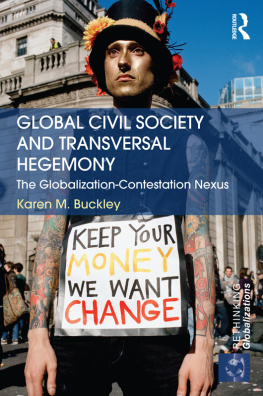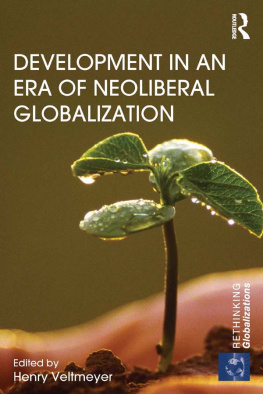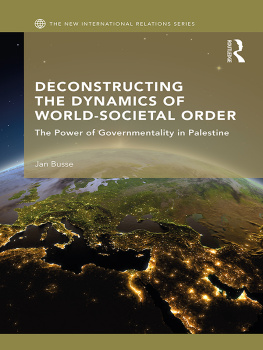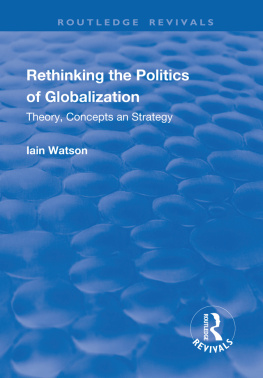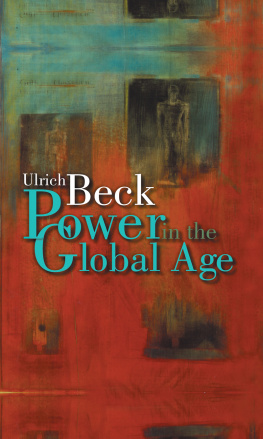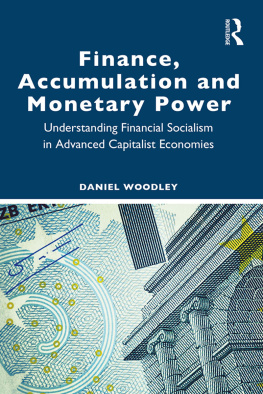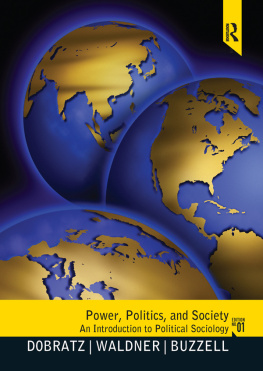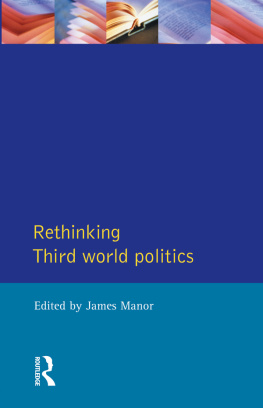First published 2013 by Paradigm Publishers
Published 2016 by Routledge
2 Park Square, Milton Park, Abingdon, Oxon OX14 4RN
711 Third Avenue, New York, NY 10017, USA
Routledge is an imprint of the Taylor & Francis Group, an informa business
Copyright 2013, Taylor & Francis.
All rights reserved. No part of this book may be reprinted or reproduced or utilised in any form or by any electronic, mechanical, or other means, now known or hereafter invented, including photocopying and recording, or in any information storage or retrieval system, without permission in writing from the publishers.
Notice:
Product or corporate names may be trademarks or registered trademarks, and are used only for identification and explanation without intent to infringe.
Library of Congress Cataloging-in-Publication Data for this book is available from the Library of Congress.
Berberoglu, Berch.
Political sociology in a global era: an introduction to the state and society / Berch Berberoglu,
University of Nevada, Reno.
pages cm
Includes bibliographical references and index.
ISBN 9978-1-61205-173-4 (pbk. : alk. paper)
1. Political sociology. 2. State, The. 3. Social classes. 4. Social movements. 5. GlobalizationSocial aspects. I. Title.
JA76.B47 2012
306.2dc23
2012047990
ISBN 13 : 978-1-61205-172-7 (hbk)
ISBN 13 : 978-1-61205-173-4 (pbk)
Designed and Typeset by Straight Creek Bookmakers.
O VER THE COURSE OF THE PAST CENTURY, the state has come to play a central role in modern society. And with this role, there has emerged a renewed interest among scholars in the study of politics and the state. Discussions and debates on the nature and role of the modern state have grown and spread across many disciplines. Together with the analysis of class structure, the state has taken center stage in social analysis in such disciplines as political economy, history, anthropology, and comparative politics, as well as sociology.
Although political sociologists have long tackled the question of the state and its role in society, interest in the state has now become a central feature in the study of politics and society. As a result, the relationship between class and state has become more obvious than before, and some important conclusions have been reached regarding the class nature of the state and politics in contemporary capitalist society.
I hope that this book will make a significant contribution to the field of political sociology and will help clarify the relationship between the state and society in general and the class basis of the state, power, and politics in particular.
Despite all the political turmoil and upheavals of the recent past, societies around the world have shown remarkable resilience in their resistance to change. The Soviet Union is no more, yet the old Soviet republics function much the same as before under a new national identity. The former Eastern European socialist states have over the past two decades moved in a capitalist direction, yet communists have won important victories in elections in Poland, Hungary, and other countries in Eastern Europe during this period. Some have declared the death of socialism and communism in the East and the decline of class politics in the West, yet China has been making great progress under the banner of socialism and communism that it claims to uphold and is now poised to become the strongest economy in the world, while class struggles have been intensifying in Greece, Spain, Portugal, Italy, France, Germany, and other advanced capitalist states in the West, including the United States. Socialist and communist forces are vying for power through the electoral process in some of these countries, while mass protests against capitalism through the Occupy Wall Street Movement have spread from the United States to many countries around the world. In South Africa, apartheid has been officially abolished, yet the white power structure and Afrikaner capital has flourished under the leadership of Nelson Mandela and the African National Congress (ANC). The Evil Empire has been defeated, some have happily proclaimed, yet a substitute has taken its place as the sole superpower as we move onward in the new twenty-first century. Some have declared the end of history with capitalism triumphant, but the contradictions of capitalism are surfacing everywhere once again and are bound to intensify with the economic and political crises that have been unfolding across the globe.
The world is rapidly changing, as centers of power shift from one region to another, but the unfolding contradictions of global capitalism are forcing its chief protagonists to build new alliances to maintain their power in response to these changes. We have seen the fierce competition and rivalry between the leading capitalist powers in the economic sphere over the past few decades. The politicalmilitary rivalry and confrontation between the competing poles of capital that are in turn bound to develop in the next period will be a reflection of changes in the economic base of global capitalism that the capitalist states will inevitably face on a worldwide basis. Thus, the cyclical fluctuations that have threatened the stability of the capitalist system from within its economic conditions to this day will now lead the system to a new plane where gradual quantitative changes will of necessity lead to the resolution of its fundamental contradictions in a qualitative way, such that the continuing rivalries between the chief capitalist powers will soon evoke open conflict between the main antagonistic classeslabor and capitalwithin each capitalist society and lend themselves to new (revolutionary) political and social transformations in the coming period. This is already occurring in vast areas of the world, from Latin America to North Africa and the Middle East, and is fast spreading to Greece, Spain, Italy, and other European states, with prospects for further expansion to the rest of Europe and, ultimately, North America, as we are beginning to see.
As we move forward in the twenty-first century, class conflict will emerge as a primary feature of struggles within and between the major capitalist powers as they attempt to further dominate the global political economy in the post-Soviet world order. As we leave behind the Cold War rivalry between the United States and the USSRa rivalry which kept the U.S. labor movement in check for decadesthe rapidly developing contradictions of global capitalism will soon prompt the working class in the United States and elsewhere to take charge of its own agenda and interests and confront the power of capital and the capitalist state head on, and put up a determined fight in the ensuing class struggles bound to come. Thus, the twenty-first century promises to be an exciting century that will affect all aspects of life in a new and most decisive way. The next big fight between labor and capital, between the forces of progress and reaction, may be upon us sooner than many have been led to believe, as the all-round contradictions of capital and the entire capitalist system unravel in front of our eyes in the period ahead.
As in any human activity involving social thought or action, the ideas expressed here are the result of a collective process. Thus, the assumptions made, the concepts utilized, and the approach adopted in this book have been developed over many years of reflection and analysis, involving many people who have addressed the pressing issues concerning the state, and politics in general, and the centrality of


